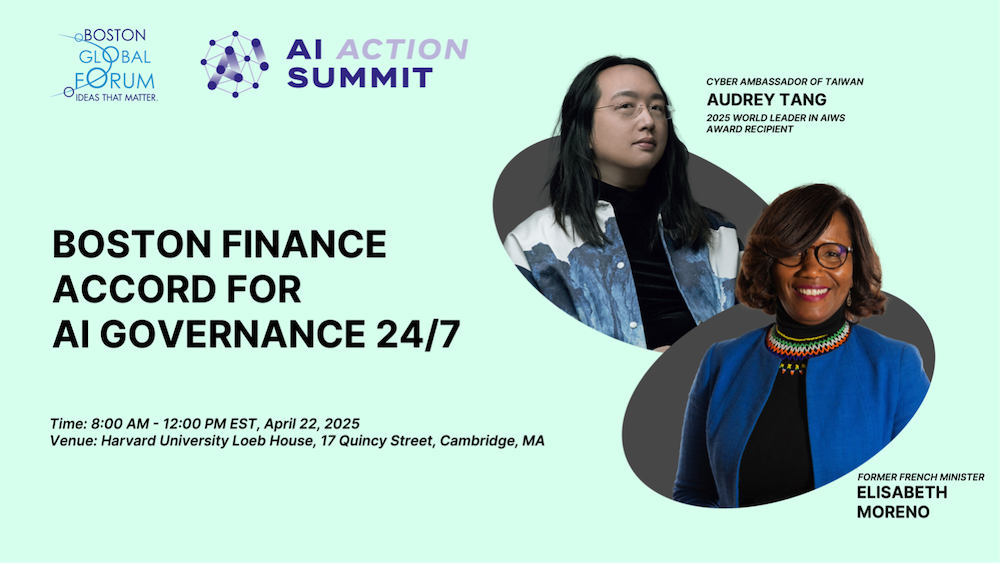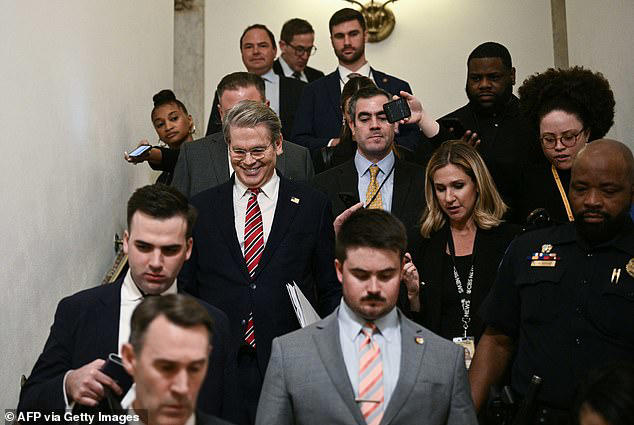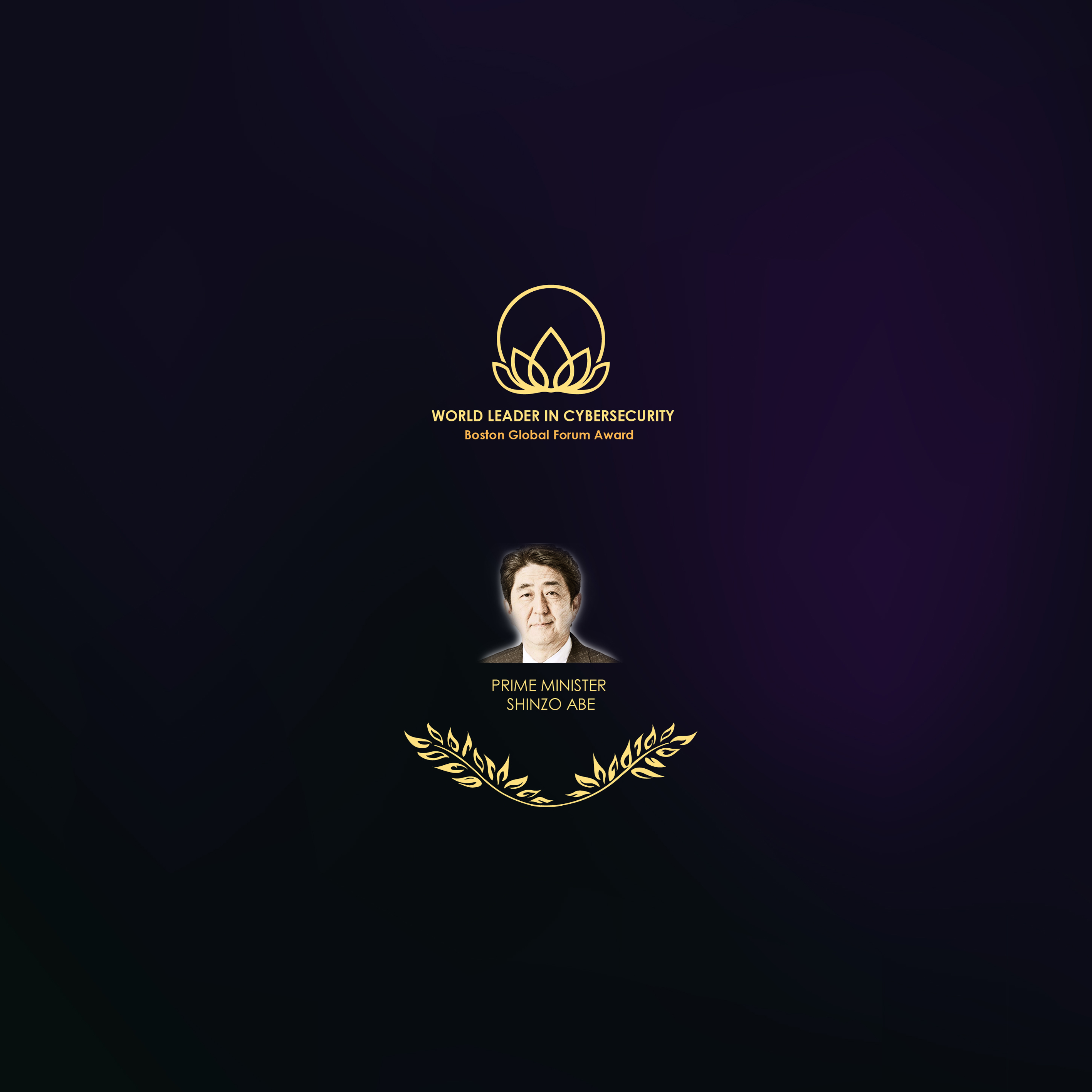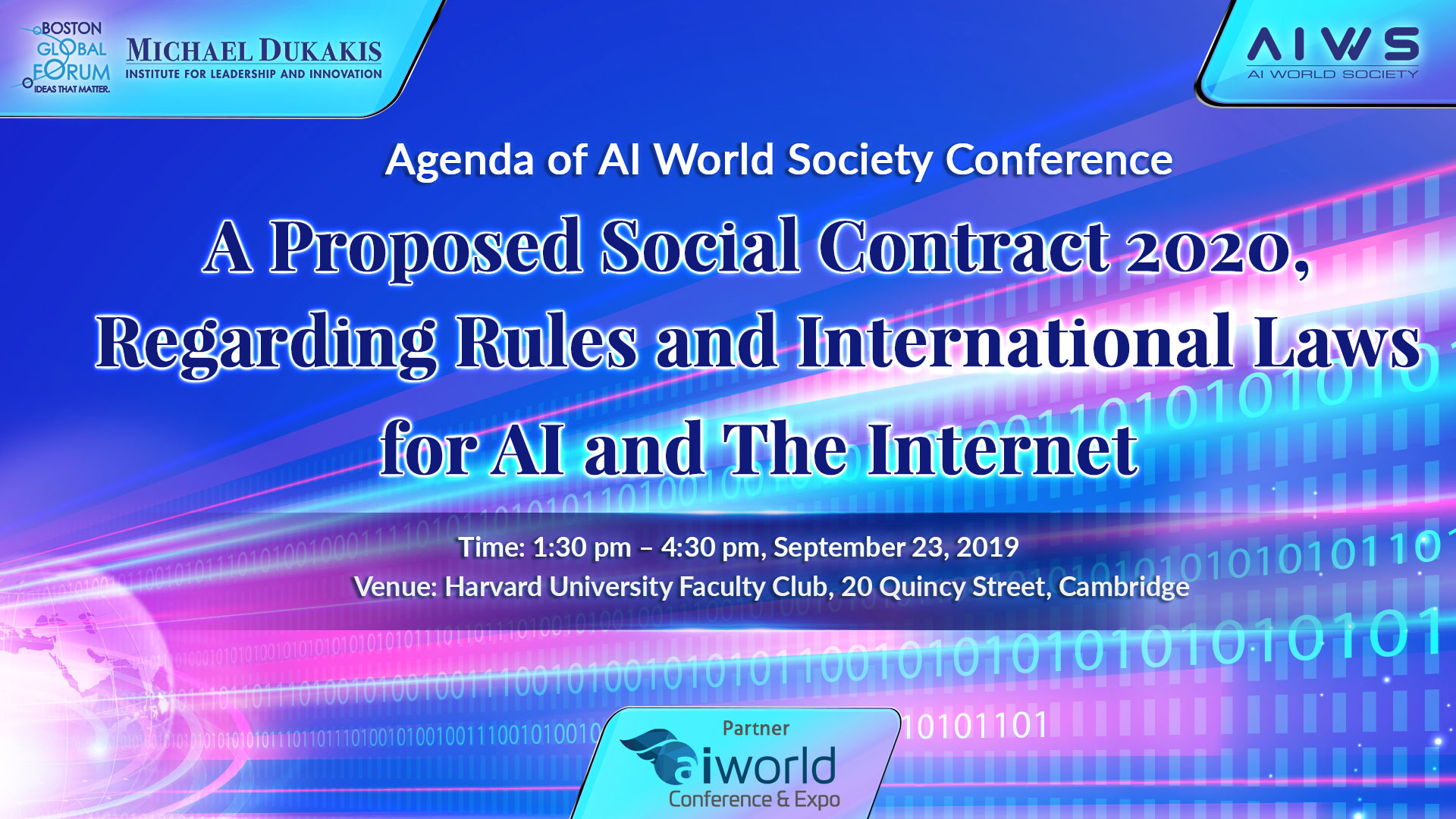Artificial Intelligence World Society
Mission
The mission of AIWS is to develop recommendations for the development and implementation of AI in ways that promote the public interest. This includes:
- Develop an ethical framework for the use of AI.
- Create a new social contract in the AI Age.
- Establish concepts and principles for the 7-layer AIWS.
- Innovate technical protocols to enhance cybersecurity and protect privacy.
- Building AI-Government, the AIWS City, and AI Initiatives in Politics and Society.
Foundation
The AI World Society Innovation Network (AIWS.net) is established by former Massachusetts Governor Michael Dukakis, Internet pioneer Nguyen Anh Tuan, M.I.T. professors Nazli Choucri and Alex Sandy Pentland, Harvard professors Thomas Patterson and David Silbersweig, and Northeastern University professor Christo Wilson.
This effort is sponsored by the Boston Global Forum, Michael Dukakis Institute, the Government of Massachusetts, and MIT and mentored by distinguished thinkers as father of Internet Vint Cerf, father of Bayesian networks Judea Pearl, father of soft power theory Joseph Nye, and from former presidents and prime ministers who are members of the World Leadership Alliance-Club de Madrid.
AIWS will identify, publish and promote principles for the virtuous application of AI, while AIWS.net will develop apps, solutions consistent with these principles for use in politics, governments, healthcare, education, transportation, national security, and other areas.
AIWS.net is constructed on four pillars:
1. Connecting
AIWS.net connects with political leaders, policymakers, governments of more than 50 countries include G7, Russia, India etc., international organizations as United Nations, OECD, World Leadership Alliance-Club de Madrid, and distinguished thinkers, innovators, research centers from leading universities as Harvard, MIT, Yale, Princeton, Columbia, Brown, Carnegie Mellon, Stanford, Berkeley, UCLA, Brandeis, University of Pennsylvania, Oxford, Cambridge etc. Through AIWS.net leaders, and distinguished thinkers will together discuss, create initiatives, solutions, applications, and practice them to build a better world with AI.
2. Monitoring and Judging:
AIWS.net will monitor AI developments and uses by governments, corporations, and non-profit organizations to assess whether they comply with the norms and standards codified in the AIWS Social Contract 2020. Noncompliant actors will be identified and publicized through fact-based reports.
3. Principles and Solutions:
Principles of AI-Governments, AI-Citizens, AIWS Social Contract 2020, AIWS City and principles of applied AI in politics, governments, education, healthcare, transportation, national security and create solutions to practicing these principles.
Assisting the United Nations in its UN 2045 Centenary Project, including preparation of a volume of forward- looking essays (curated by Mr. Nguyen Anh Tuan) on technological change.
Together with principles of AIWS, the Social Contract 2020, AIWS.net created the section Modern Causal Inference (MCI) to introduce and encourage applied Causal Inference and AI in politics, governments, healthcare, and economy. Professor Judea Pearl, UCLA, Turing Award, World Leader in AIWS Award, lead MCI section.
4. The History of Artificial Intelligence (HAI)
Historical events, achievements, and figures in AI: The AI Chronicle updated monthly, and The History of AI House, both online and physical at Novaworld Phan Thiet, Vietnam.
The HAI Board is chaired by Governor Michael Dukakis, with Professor Nazli Choucri (MIT), Professor Caroline Jones (MIT), Prime Minister Zlatko Lagumdzija, Bosnia and Herzegovina, Historian Chien Minh Le, President of Dalat University, Professor Ole Molvig (Vanderbilt University), Tuan Anh Nguyen (Michael Dukakis Institute), Professor Thomas Patterson (Harvard University), Professor Judea Pearl (UCLA), Professor Alex Pentland (MIT), Marc Rotenberg (Michael Dukakis Institute), Professor David Silbersweig (Harvard University), and President Vaira Vike-Freiberga, Latvia, Dr. Lorraine Kisselburgh (Chair of ACM’s Global Technology Policy Council), Professor Randall Davis (Associate Director of MIT’s Artificial Intelligence Laboratory (1993-1998)), and Professor Caroline A. Jones (MIT) as members.
AIWS NEWS

BGF Conference: Boston Finance Accord for AI Governance 24/7
Agenda BGF Conference: Boston Finance Accord for AI Governance 24/7 📍 Harvard University Loeb House, 17 Quincy Street, Cambridge, MA 📅 Tuesday, April 22, 2025 🕗 8:00 AM – 11:30 AM EDT 8:00 AM – 8:20 AM Registration & Welcome Coffee Arrival...

Toward a New Economic Alliance: U.S., Japan, India, Vietnam, South Korea, EU, UK
Boston Global Forum Statement Date: April 12, 2025 The recent tariff policy announced by President Donald Trump and members of his Cabinet marks an important decision in U.S. economic and strategic policy. It underscores the growing importance of alliances and...
Bringing DevOps Control To Bear On AI Applications
Enterprises are putting a lot of time, money, and resources behind their nascent Artificial Intelligence (AI) efforts, banking on the fact that they can automate the way application leverage the massive amounts of customer and operational data they are keeping. The...
Shinzo Abe says Seoul’s withdrawal from intelligence-sharing deal ‘damages mutual trust’
Japan and the US have expressed alarm after South Korea formally withdrew from an intelligence-sharing deal with Tokyo. Analysts said the move could jeopardise efforts to track and curtail North Korea’s nuclear weapons programme. Senior officials exchanged angry...
Beyond the Hype: The EU and the AI Global ‘Arms Race’
We live in times of high-tech euphoria marked by instances of geopolitical doom-and-gloom. There seems to be no middle ground between the hype surrounding cutting-edge technologies, such as Artificial Intelligence (AI) and their impact on security and defence, and...
AI Conference on 23 September to discuss about The Social Contract 2020 and International Law for AI and the Internet
The Boston Global Forum and Michael Dukakis Institute for Leadership and Innovation will organize the AI World Society Conference on 1:30 pm, September 23, 2019 at Harvard University Faculty Club, to introduce and discuss the Social Contract 2020 and rules and laws...
How an AI patent application could affect life sciences
After news emerged that a multi-disciplinary team led by the University of Surrey successfully filed the first ever patent applications for inventions autonomously created by AI without a human inventor, Ian Bolland caught up with team leader Professor Ryan Abbott...
The world’s biggest chip is bigger than an iPad and will help train AI
At the Hot Chips conference in Silicon Valley this week, Cerebras is unveiling the Cerebras Wafer Scale Engine. The chip is almost 57 times bigger than Nvidia’s largest general processing unit, or GPU, and boasts 3,000 times the on-chip memory. GPUs are silicon...





